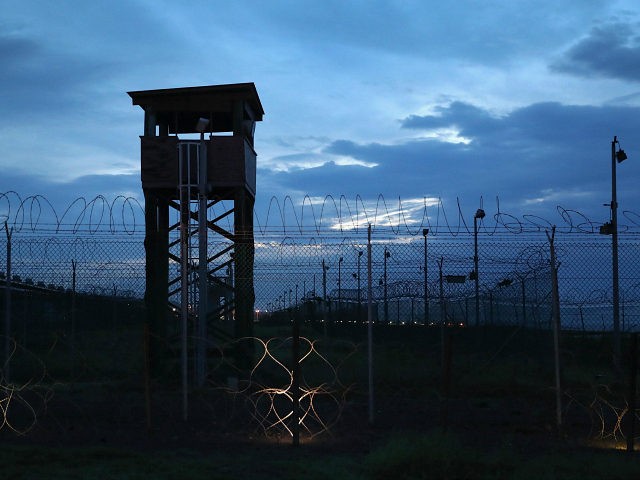Outgoing President Barack Obama appears to remain adamant in his quest to shut down the U.S. military prison in Guantánamo Bay, Cuba, a campaign promise he made prior to his first-term.
Some Republicans have criticized the president’s rush to close the facility, also known as Gitmo, before he leaves office.
In March, Paul Lewis, the Pentagon’s special envoy for the closure of the detention center, told lawmakers he was confident the facility would be closed and all the detainees released or transferred by the end of Obama’s term.
“We’re closer to it than many people realize,” he declared.
In recent weeks, the Pentagon’s Office of Military Commissions has stepped up court hearings while Obama’s parole-style panel, formally known as the Periodic Review Board (PRB), has hastened detainee reviews.
The PRB panel — which consists of one senior official from the Departments of Defense, Homeland Security, Justice, and State; the Joint Staff; and the Office of the Director of National Intelligence — determines whether a prisoner can be liberated or is too dangerous to release.
According to the Pentagon, the PRB “process is a discretionary, administrative interagency process to review whether continued detention of particular individuals held at Guantanamo remains necessary to protect against a continuing significant threat to the security of the United States.”
President Obama established the board in March 2011.
Of the 60 detainees still held at Guantánamo, PRB has approved 20 for release with security assurances that satisfy Secretary of Defense Ash Carter and a staff or around 1,900 troops and civilians.
Last month, the Miami Herald, citing an unnamed U.S. official with the knowledge of the transfer process, reported that the Obama administration is currently not providing 30-day transfer notices to Congress as mandated by law.
“There are some additional transfers that may be taking place over the next two months,” declared Obama on November 14, noting, “There is a group of very dangerous people that we have strong evidence of having been guilty of committing terrorist acts against the United States.”
Incoming President Donald Trump campaigned on a promise to keep Gitmo open and “load it up with some bad dudes.”
In a rare show of bipartisanship, Democrats and Republicans have refused to go along with Obama’s plans to shut down the military prison.
Earlier this year, the Pentagon submitted a proposal to Congress to close down the detention center. The plan requires the transfer of detainees onto to U.S. soil, a move that is banned by a bill signed into law by Obama himself.
Nevertheless, the president has blamed his inability to empty and shut down the facility on Congress.
Some lawmakers have expressed concern that given Obama’s history of circumventing the will of Congress, the president may try to do all in his power to close down Gitmo despite the law preventing him from doing so.
Obama suggested that he has considered executive options with the propensity for legal challenges that may result in charges being filed against those who carry out his orders.
“One of the things you discover about being president is that there are all these rules and norms and laws, and you got [sic] to pay attention to them. And the people who work for you are also subject to those rules and norms,” he told reporters, referring to the legislative restrictions that prevent him from closing down the Guantánamo prison.
In a sign that the facility may remain open after President Obama leaves office, the Navy recently announced that it was sending Rear Adm. Edward Cashman, 51, to serve as the 17th commander of prison operations at Guantánamo Bay, Cuba.

COMMENTS
Please let us know if you're having issues with commenting.